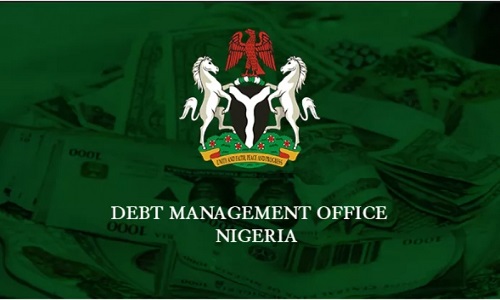SECTOR INSIGHT 09/08/2022
NESG Asks FG To Tackle Insecurity and Remove Petrol Subsidy

The Nigerian Economic Summit Group (NESG) has made a passionate appeal to President Muhamadu Buhari to utilise the remaining 10 months in his administration to make tough choices and take decisive actions that would pull Nigeria from the brink of socio-economic collapse.
These decisive decisions, according to the NESG should include addressing mounting insecurity challenge in the country and crude oil theft, ending the multiple exchange rate system which it stated was keeping foreign investment away from Nigeria as well as to be decisive in removing petrol subsidy in a manner that would not hurt the vulnerable segment of Nigerians adversely.
It also tasked the government to take necessary steps to restore Nigeria back to fiscal and debt sustainability.
The appeal by the NESG was contained in communiqué titled, “Of Hope and Despair … Not Too Late to Turn the Curve,” obtained by press.
The advice by the NESG came just as the Lagos Chamber of Commerce and Industry (LCCI) expressed concern that almost all assumptions in the federal government’s Medium-Term Expenditure Framework (MTEF) for 2023-2025 were seemingly unrealisable and tasked the federal government to rethink its sources of debt by embracing equity financing and commercialisation of corporate national assets as cheaper financing options with less pressure on revenue.
Also yesterday, the Nigeria Employers’ Consultative Association (NECA) tasked the federal government to prioritise the manufacturing sector in the allocation of the country’s foreign exchange (FX).
The NESG communiqué, which was signed by its Chairman, Mr. Asue Ighodalo, stated categorically that there was no doubt that Nigeria was at an inflection point, but added that the actions and inaction of the country’s political leadership would have significant implications for the direction of inflection.
Ighodalo stated: “It is still possible to turn the tide, and it is not too late to bring the nation out of the current quagmire. Our appeal to Mr. President is that a lot can still be done to turn the curve within the remaining 10 months of this administration. This requires tough choices and decisive actions, with no sacred cows.
“As one to whom providence has bestowed the honour of leading this nation time and again, your administration can begin to lay the groundwork for a legacy that a new government can build upon from Monday, 29 May 2023.”
The communiqué surmised the threatening socio-economic challenges besetting the country, including Nigeria’s inability to appropriate the benefits of the prevailing global high crude prices as a result of low crude oil production largely due to oil theft and pipeline vandalisation, declining investment and divestment caused by oil theft, high cost of production, and a harsh operating environment.
The NESG added: “The country’s external reserves have been declining for most of 2022 while the Naira continues to depreciate, and the country still operates multiple exchange rates.
“Amid this crisis, fiscal pressure is imploding because of declining revenues and soaring public debt. Only recently, the Honourable Minister for Finance, Budget and National Planning, Dr. Zainab Ahmed, alerted Nigerians that the cost of debt servicing has surpassed federal government’s retained revenue as total public debt continues to rise.
“Meanwhile, CBN’s Ways and Means financing to the federal government peaked at N19.6 trillion as of May 2022, and the country maintains an unsustainable fuel subsidy regime.”
It pointed out that the, “growing deficit means that Nigeria would rely on borrowing to finance the 2022 budget.”
It added that despite increased budgetary allocation to defense and national security, the current state of insecurity is indicative of a nation under siege.
The corollary, according to the communiqué, was that, “Nigerians now live in a permanent state of fear as bandits are able to hijack a train and kidnap dozens of passengers, overrun prisons and release hundreds of convicted criminals, and hold hundreds of kidnap victims for months at a time.”
The NESG, therefore, recommended specific actions government could take to restore momentum to the country’s economy and national life.
These include, “a decisive action to tackle the government’s revenue challenges which cannot be divorced from leakages through the large-scale crude oil theft; difficult operating environment for businesses, and lack of innovation in tax collection/administration, among others, that have resulted in low accretion to the nation’s revenue base.
“We strongly believe these leakages have continued unabated because of the absence of sanctions and ineffective tax systems.”
It also recommended that the country must be returned, “to the path of debt sustainability in the face of dwindling revenues,” rather than creating “a debt burden for future governments and, indeed, future generations.
“We must prioritise our expenditure, limit our spending to items we can sustain, and eliminate wastage and graft in government. Governments, across all tiers, should lead by example through a drastic reduction in governance costs to reflect the austere times we face.
“We strongly advise greater transparency and simplicity in the management and communication of various subsidies (petroleum products, electricity, etc.) to establish their true costs that benefit the people.”
It pointed out that, “urgent action is required to ensure food self-sufficiency by prioritising critical value chains and supporting private sector-led interventions to curtail this crisis and build a vibrant and sustainable food ecosystem in Nigeria based on consistent incentives and sanctions.”
The NESG argued that failure to address the current prevailing condition of multiple exchange rates has continued to reduce the much-needed flow of foreign investments and official diaspora remittances.
“International investors, being savvy and rational, will not invest where there is a real risk to their ability to access and repatriate investment proceeds or when the functional currency is in sporadic depreciation.
“Multiple foreign exchange markets with significant price differentials create room for speculation, round-tripping, cronyism, and outright graft– with an attendant adverse effect on the economy. There is no better time to harmonise the FX rates than now.”
It noted that it has become, “clear that the current fuel subsidy regime’s debilitating impact on our fiscal fragility cannot be overstated,” and urged “the federal government to explore a systematic subsidy removal programme that cushions the impact on our most vulnerable population through a well-coordinated and effectively transmitted social protection regime.”
The NESG also urged the government, “to devise a pragmatic national security strategy that unconditionally guarantees the safety of lives and properties within the country,” adding that, “the ongoing face-off between the federal government and the Academic Staff Union of Universities (ASUU), which has resulted in the closure of universities for about six months, has become a national embarrassment.
“In order to signal the government’s commitment to a speedy resolution, we now need direct and strong presidential leadership in the discussions and negotiations to get our students back to school.”
The NESG also pledged to support the government to evolve sustainable governance and funding strategies for tertiary education in the country as the frequency of this face-off between government and university teachers has indicated a failure in the current funding model for tertiary education.
The NESG also called for a new social contract between the government and the people of Nigeria to reduce the growing trust deficit, since “the goodwill that a government enjoys from its people is no different from the operation of a bank account – in this case, an emotional bank account. Good governance yields additional deposits while each governance failure gradually depletes the account.”
Notwithstanding, the board of the NESG commended “the federal government for commencing the implementation of the Medium-Term National Development Plan (2021 – 2025).”
It also “acknowledges and commends the efforts of President Muhammadu Buhari and the National Assembly in passing into law the Electoral Act, 2022, which is already proving to be a veritable tool for improving our electoral process. These are good legacies, but there is much more to be done.”



